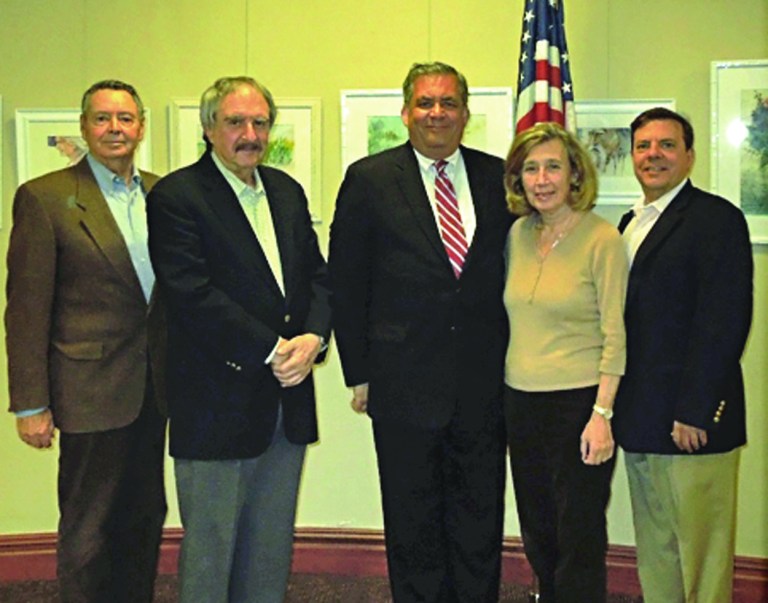
In an optimistic “State of the Village” address, Plandome Heights Mayor Kenneth Riscica on Monday described progress made on a $1.1 million road repair plan and said the village had overcome fiscal challenges like expiring snow removal and sanitation contracts as well as a restrictive tax cap.
“Last year at this time we were facing a number of issues,” he said. “I was concerned. This year has been about dealing with those challenges.”
He said a surge in building over the past five to 10 years has helped fund village projects.
“The building boom has helped get us a surplus,” he said.
Over the next 10 years, the village will spend $500,000 of that surplus toward the road repair project, Riscica said.
The remaining capital funding will come from grants, he added.
Phase one of that project began last year, when the village spent nearly $200,000 to repair the Neck, the Waterway and Grandview Circle.
“Stage two of the capital plan is to repave Cove Drive,” Riscica said in a village newsletter.
He said the village expects to expand stage two to include improvements on Willow Court and Plandome Court.
In total, stages one and two will cost $325,000, he said.
“The capital plan continues and is well-funded,” he added. “We’ve done the right things with a solid plan and we have the money to back it up.”
Over the past year, the village reached agreements on new contracts for snow removal and sanitation, which make up 35 percent of the overall budget.
In February, the village renewed its sanitation contract with the current provider, Dejana Industries, for seven years plus an option for three additional years.
The cost declines over the first year and then increases 2 percent over each of the remaining years, Riscica said.
The village renewed its snow removal contract with the current provider, Cow Bay, for 10 years with the price fixed for five years and modest increases each of the remaining five, Riscica said.
“The bid strategy was to extend the term and achieve savings,” he said.
He said the tax cap of 0.12 percent for the 2016-17 budget was “extremely tight.”
“The tax cap has hit a more normal range,” he said, allowing the village to raise property taxes 1.5 percent, or $15 per household, in the 2017-18 budget.
He said the village can minimize costs in part because much of its work is done by volunteers, including trustees and other board members.
“A village is one of most efficient local governments because of the volunteers in this room and the work they do,” he said.
He concluded the address on a simple note.
“The state of the village is good,” he said.






